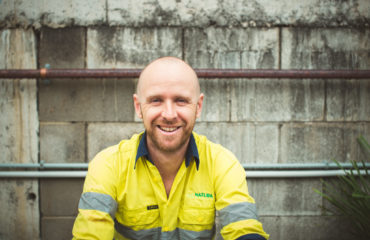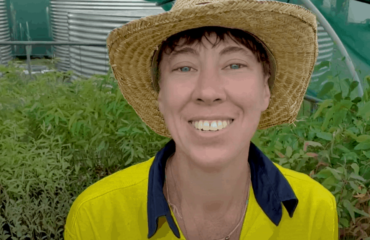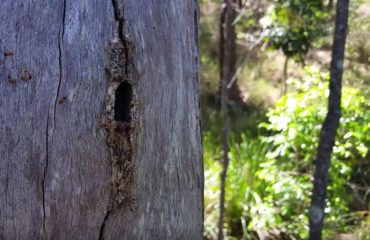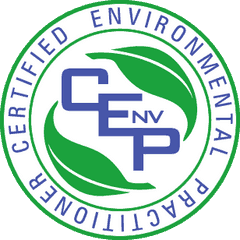So Much Plastic!
We see it on our beaches, in our street gutters and storm drains, wedged in trees, behind bushes and even in the stomachs of dead animals, yet for some reason we still use massive amounts of single use plastic on a daily basis.
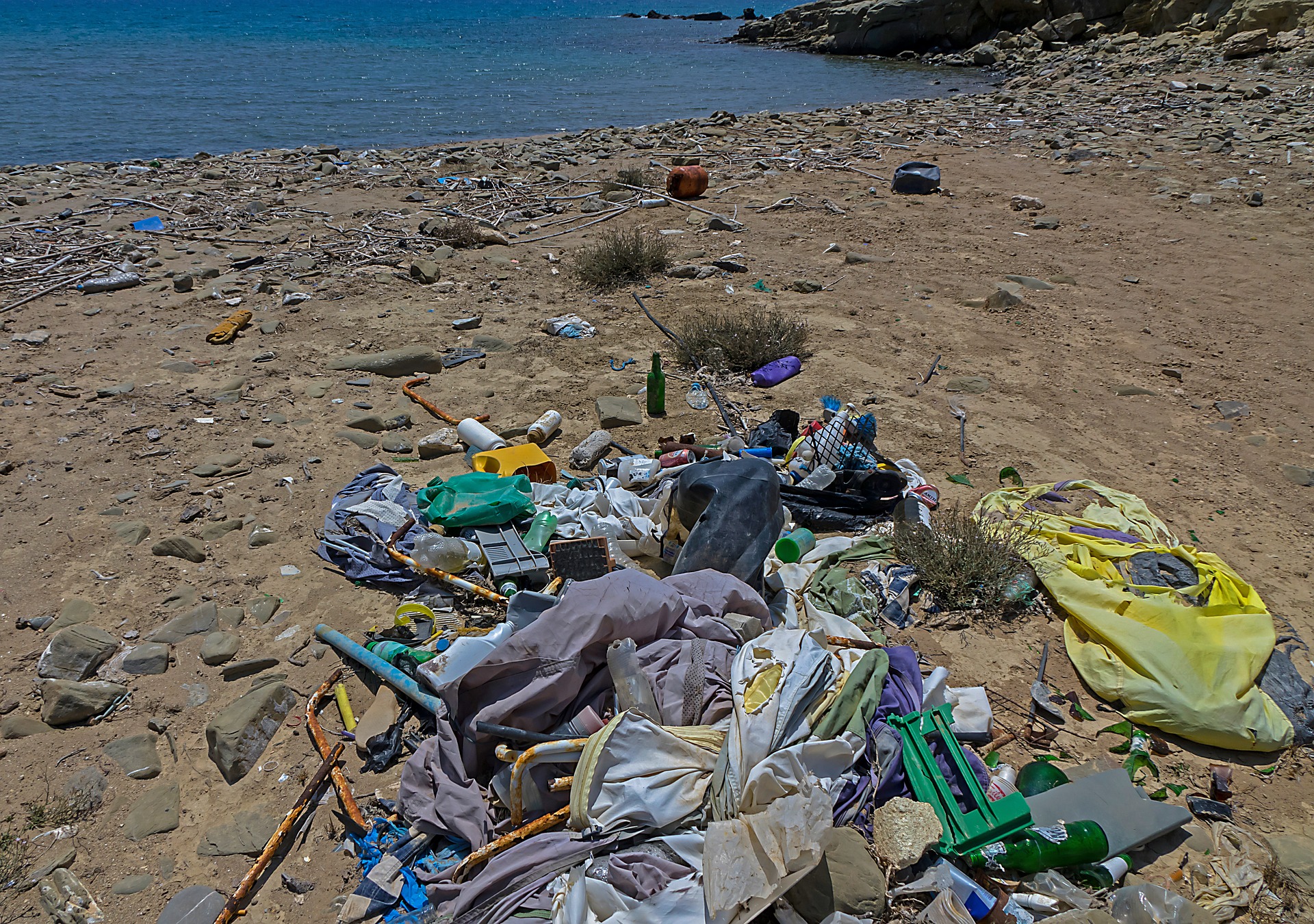
Humanity has created over 8.3 billion tons of plastic waste since the 1950s and we show no signs of slowing down. With our plastic use set to increase by 40% in the next ten years this paints a depressing picture for our world’s future. From the medical industry to food wrapping, it has so many uses. It’s durable, light weight and cheap to manufacture, making it the perfect solution for our fast paced and growing society. But what happens when we are done with it?
The answer is: it just about always becomes either landfill or litter!
Of the 8.3 billion tons of plastic we have created, only 9% has been recycled, the rest goes to landfill or winds up in the ocean through irresponsible waste habits. Plastic makes up a total of 80% of the marine debris in the ocean, even collecting in places to form large rubbish islands that are visible from space! It’s deadly to marine animals and ecosystems, and breaks down into tiny microplastics which absorb toxins from the ocean becoming dangerous if consumed. As plastic is so durable it can take up to 1000 years to breakdown. By 2050 there will be more plastic in the ocean than fish, and 12 billion tons of plastic in landfill.
It’s a huge issue and one getting worse every day. So why do we keep using plastic when we know all this?
The reality is people are busy and always on the move, it is so hard to give up something we are so dependent on. When we get these devastating facts, it’s overwhelming and hard to comprehend, it is obvious something needs to change and plastic needs to go.
The good news is that it is not hard to start. If we all begin to stop using plastics, single use ones especially we can start to make a big change. Living without plastic is doable, we just need to start small.
So here are a few super simple steps you can take to reduce your singe use plastic consumption in your busy daily lives:
Plastics on the go
It’s hard to be sustainable on the go, but with a little effort it is possible.
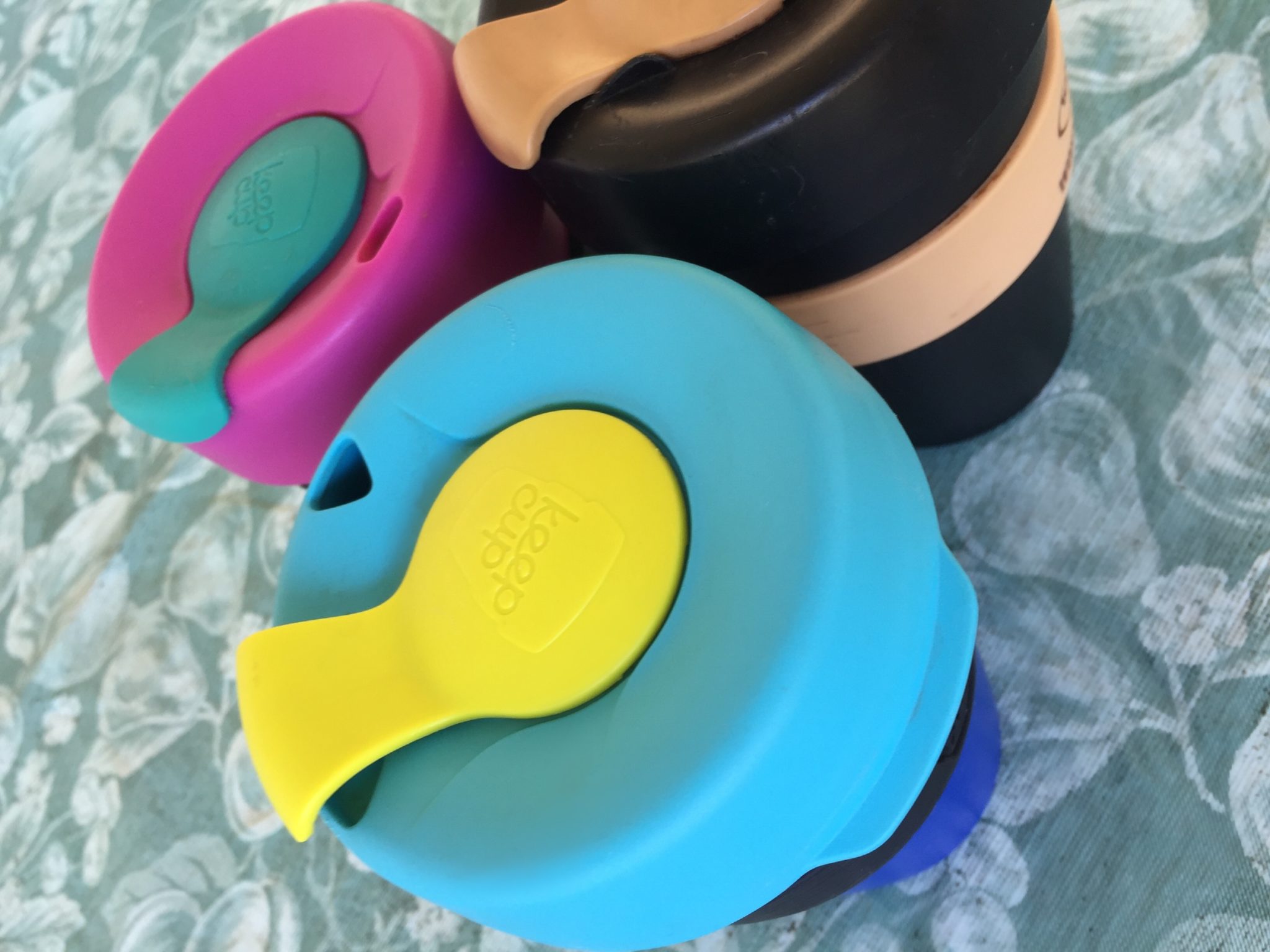
Use keep cups for your coffee
Australians use around 1 billion disposable coffee cups every year and throw out around 2,700,000 a day. The worst part about this is that these single use cups can’t be recycled. The cups are coated in a polyurethane plastic layer so that they hold beverages and to pass health regulations must be made from virgin materials. This means there is no way of cups being made out of recycled paper or being recycled themselves. Non-reusable cups are an unsustainable and wasteful product that just ends up in land fill or in our precious oceans. Fortunately, it is easy to get them out of your life. Buy a reusable cup and get into the habit of keeping it on you wherever you go. It is an easy step to take and it is a much better alternative to paper, some cafes even offer small discounts to reusable cup users.
Wax wrap not clingwrap
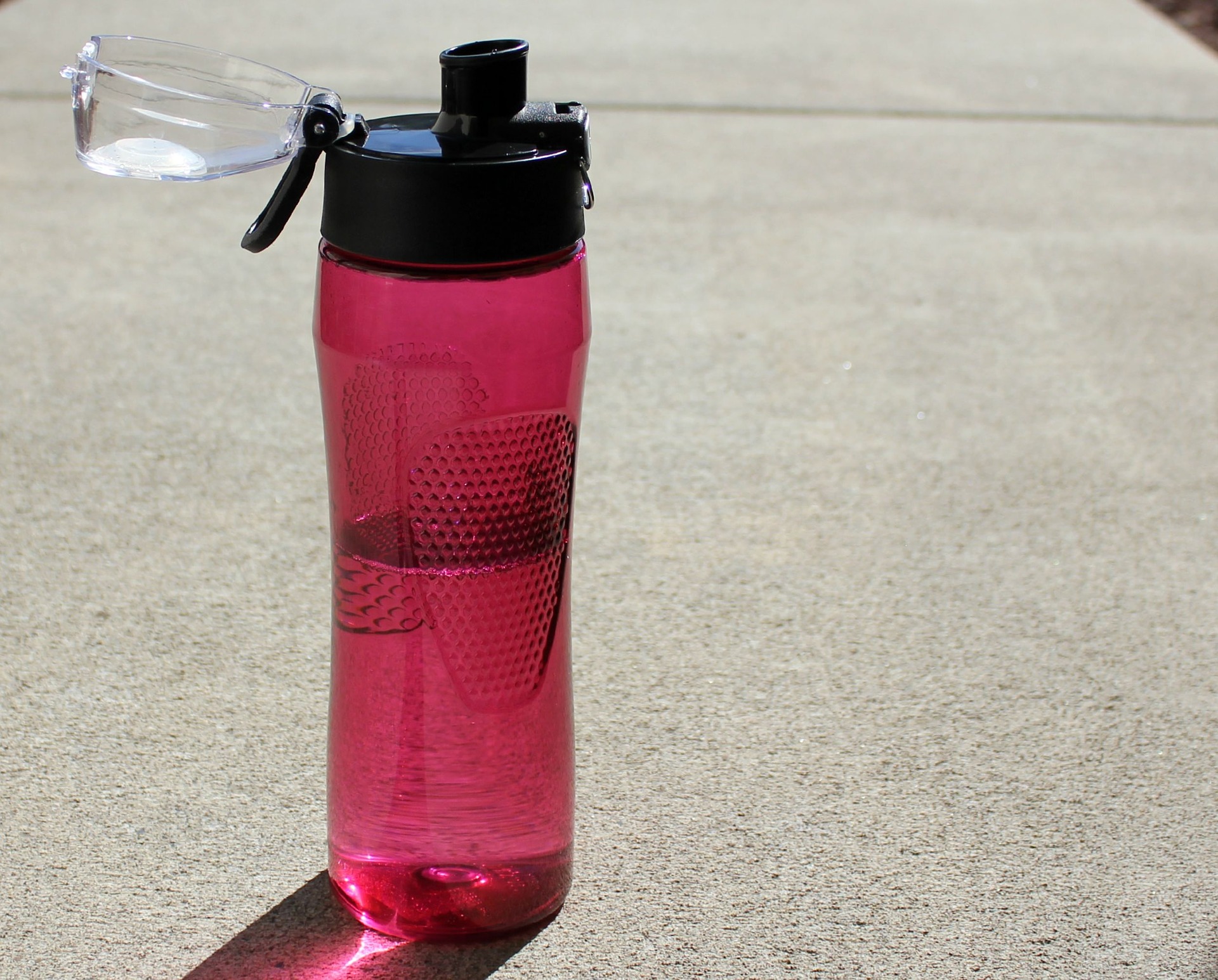
Clingwrap is a common lunchbox item and to some an essential. It keeps food fresh and then gets thrown away after a single use. Instead of using this wasteful product invest in some reusable containers or better yet bees wax wraps (cotton fabric impregnated with natural bees wax). They are more affordable in the long run and a much more sustainable option.
Reusable water bottles
Worldwide, a million plastic bottles are purchased every minute! Carrying a reusable water bottle is an easy habit to integrate into your everyday life. It is cheaper than bottled water and nowadays there are taps everywhere to refill your bottle.
Plastics in the shops

Supermarkets are full of single use plastics products and it is a struggle to avoid them entirely. However, we can reduce the amount we buy.
Choose sustainable packaging
When choosing a product opt for one packaged in a cardboard box or glass when possible. Look for the recycling symbol on your plastic products and recycle them when you are done.
 Reusable bags
Reusable bags
Early last year Australia took the much-needed step towards a more sustainable future and banned free plastic bags at major retail chains. This resulted in an 80% decline in the number of plastic bags consumed. It goes to show that we can change our ways in terms of plastic consumption. Fabric (rather than plastic-based) reusable bags are sustainable and biodegrade quicker than plastic.
Shopping in bulk
As well as being a money saver, when you buy your food in bulk it minimises the amount of plastic you use as it eliminates the packaging. It is a little more time consuming, but a lot more environmentally and economically beneficial.
Plastics in the party scene
Parties can be a terrible consumer of single use plastics! From the cutlery to the decorations plastic is an easy solution to the event at the time, however a very unsustainable habit and it is about time we uninvite plastics to the party.
Bamboo plates and cutlery
Some recycling companies will accept plastic cups, plates, knives, forks and spoons, but most won’t as it is just not cost efficient. Bamboo plates and cutlery are biodegradable and are a great way to avoid plastic and still skip the washing up.
 Party without balloons
Party without balloons
Another party culprit are balloons. They may look pretty in the moment and entertain the kids for a short while, but after that moment if they don’t end up in land fill they either pop and the rubber remnants are left on the ground, or they float away and end up in the ocean. Balloons are usually not biodegradable, and even biodegradable balloons cause environmental issues, once in the ocean they are consumed by marine life which more often than not kills them.
But do not despair, there are other ways to make your party ‘pop’ such as flowers, flags or even bubbles.
Say no to confetti
Confetti is fun, but it is unlikely that all of your confetti will end up in the bin, at the end of your party. Like all littered plastics that end up in our waterways, confetti breaks up not down, and turns into harmful microplastics. If you are still determined to use confetti, consider the environmentally friendly version of replacing with petals or making sure they are sourced from organic material that breaks down.
A plastic-free future!
It is going to take a lot of effort for us as a society to quit our plastic habit, but as you can see it isn’t too hard to start. Before you buy your next plastic item, think:
Do you really need this?
Is there a renewable alternative?
If there is no way around it then when it is time to dispose of your item consider if you or someone else could reuse it, then recycle or dispose of it responsibly.
It may be a little inconvenient at times, but quitting your non-reusable plastics habits is essential for us to work together to move towards a more sustainable future.
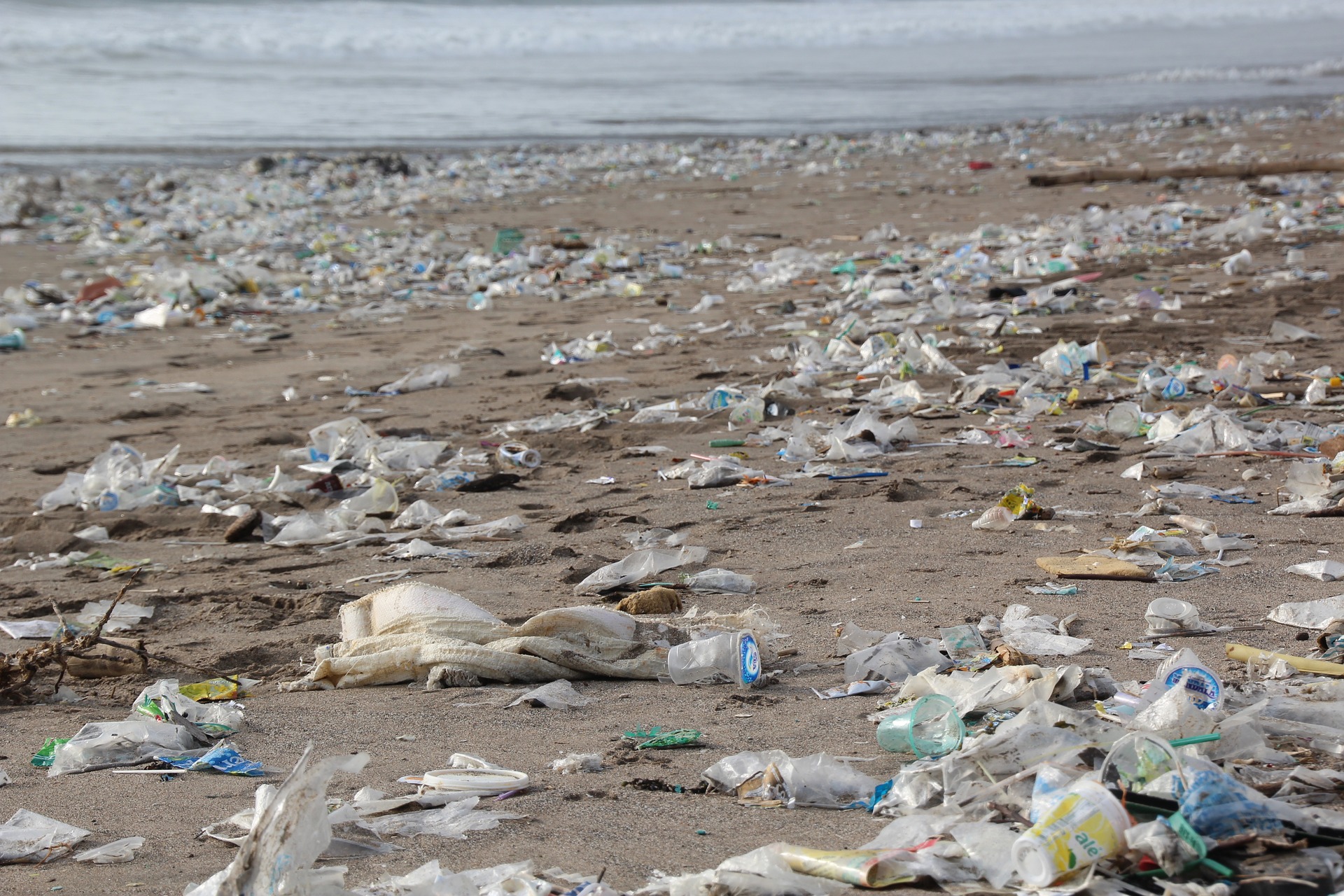
This article was researched and written by one of Natura Pacific’s student interns – Charlie Hamblyn from Silkwood School.
CITATIONS:
https://www.environment.gov.au/protection/waste-resource-recovery/plastics-and-packaging
http://www.greeneducationfoundation.org/nationalgreenweeksub/waste-reduction-tips/tips-to-use-less-plastic.html
https://www.qld.gov.au/environment/pollution/management/waste/recovery/reduction/plastic-pollution/single-use-plastics-guide/single-use-plastics-guide-individuals
https://sustainablecampus.unimelb.edu.au/a-z/c/coffee-cups
https://ecoffeecup.eco/about-us/nine-alarming-facts-about-single-use-cups/
https://www.mnn.com/lifestyle/recycling/questions/can-plastic-forks-and-plates-be-recycled
https://www.seewinter.com/eco-friendly-alternatives-balloons/
https://news.nationalgeographic.com/2017/07/plastic-produced-recycling-waste-ocean-trash-debris-environment/
https://www.nationalgeographic.com/magazine/2018/06/plastic-planet-waste-pollution-trash-crisis/
https://www.globalcitizen.org/en/content/plastic-production-increase-pollution-ocean-waste/
https://www.theguardian.com/environment/2017/jun/28/a-million-a-minute-worlds-plastic-bottle-binge-as-dangerous-as-climate-change
https://www.news.com.au/lifestyle/real-life/news-life/australiawide-bag-ban-leads-to-15-billion-fewer-plastic-bags-in-the-environment/news-story/678f21eb838fb6706baa370bc3b3ec29
IMAGES:
https://www.pixabay.com/


